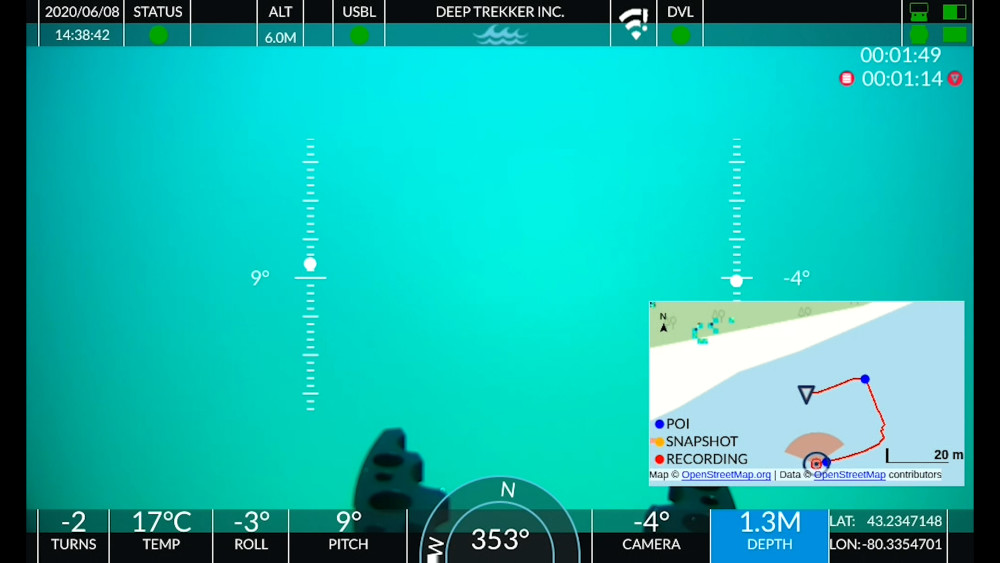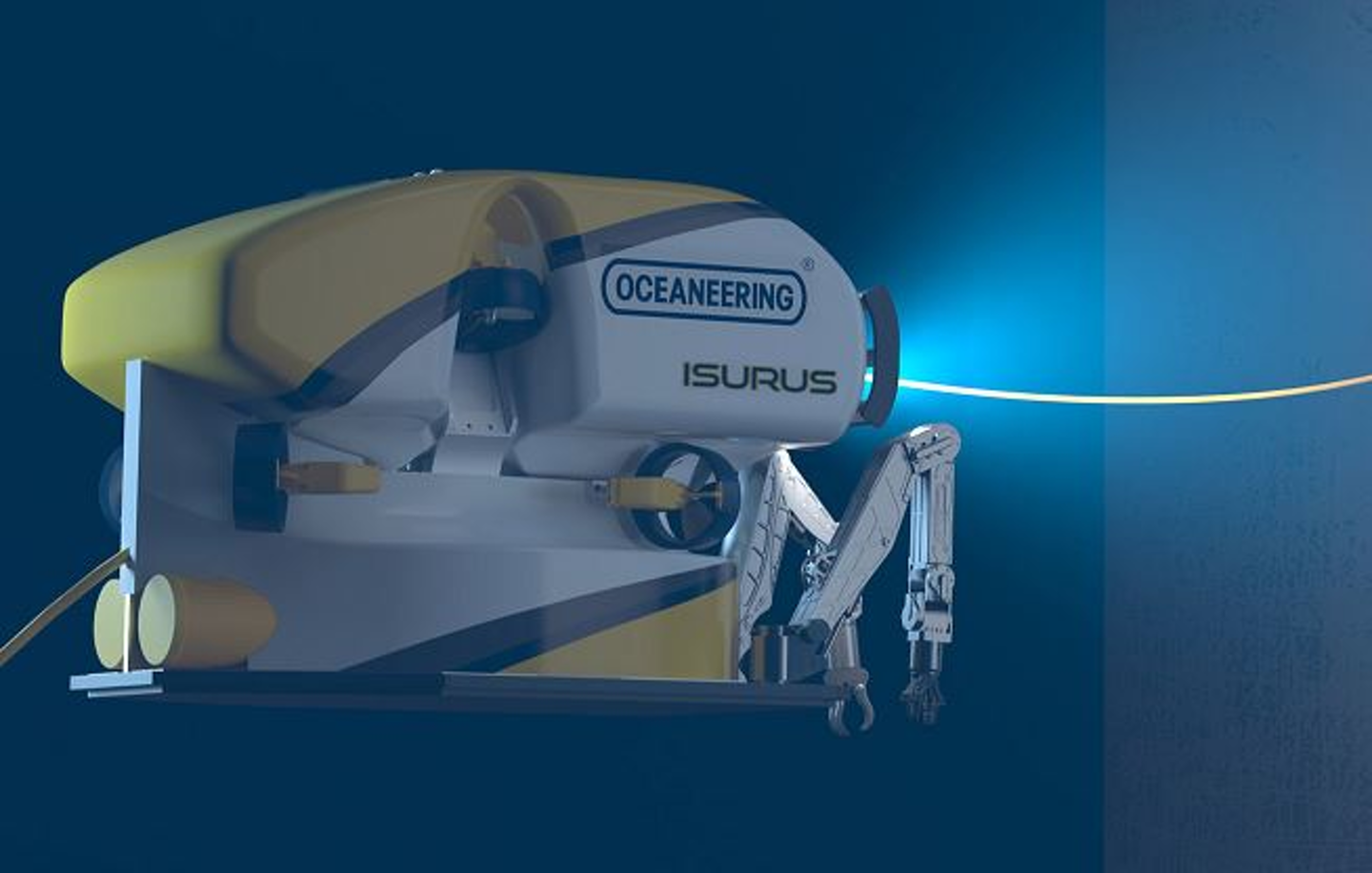Home › Forums › Safety, Survival Courses & Medicals › Offshore Safety/Survival Courses › ROV Training
- This topic has 3 replies, 3 voices, and was last updated 12 years, 11 months ago by
Paul.
-
AuthorPosts
-
February 11, 2009 at 3:06 pm #2214
mullan
ParticipantHey Im new to this forum and have a couple of questions to ask the members about ROV’s. Im an Electrician by trade and qualified 12 years ago,the last 6 or so have been in supervisory roles (alot of paper pushing).Ive just finished a job in saudi onshore and have recently had a young baby.I am interested now in doing some offshore work(I believe the rotation is better than onshore), I go about my medical in 3 weeks and get the survival training after that. I ve checked out FAQ’s and the general feeling I get is not to do a training course in ROV’s.There is a lot of money involved so my questions are:
1). How do you get the training and qualifications to be a pilot tech?
2). Are companies hiring offshore rookies?
3)Is the pay really crap?(1 course in fort william was 10 grand) so you would expect to be recognised in some capacity!
4). Is it true that demand for tech outways the supply right now or have I been fed a good one!I apologies if any of these questions have been asked over and over but I feel its something I would be interested in and a different career path so any honest related feedback anyone haswould be appreciated
Thanks
MullanFebruary 11, 2009 at 11:06 pm #22080Ray Shields
ParticipantHey Im new to this forum and have a couple of questions to ask the members about ROV’s. Im an Electrician by trade and qualified 12 years ago,the last 6 or so have been in supervisory roles (alot of paper pushing).Ive just finished a job in saudi onshore and have recently had a young baby.I am interested now in doing some offshore work(I believe the rotation is better than onshore), I go about my medical in 3 weeks and get the survival training after that. I ve checked out FAQ’s and the general feeling I get is not to do a training course in ROV’s.There is a lot of money involved so my questions are:
1). How do you get the training and qualifications to be a pilot tech?
2). Are companies hiring offshore rookies?
3)Is the pay really crap?(1 course in fort william was 10 grand) so you would expect to be recognised in some capacity!
4). Is it true that demand for tech outways the supply right now or have I been fed a good one!I apologies if any of these questions have been asked over and over but I feel its something I would be interested in and a different career path so any honest related feedback anyone haswould be appreciated
Thanks
MullanMullan,
welcome to the forum wi8th some very common questions.
1) the training is technical. You require to have technical qualification and experience backgroud. An ROv is a technical piece of equipment like any other, the flying and operations you wsill learn on the job as its like nowhere else,. This is why we need TECHNICAL people to join the industry.
2) Yes, companies really are taking on people wjho have never worked offshore – its not something you can learn until you do it. The company I work for, Fugro, look for a technical background. My previous Ops Manager said "I want to take on Engineers and teach them about ROVs, I dont want to take on people and teach them to be Engineers"
3)The pay is not so good for the first year or so if you are coming from another industry. e.g. RAF. You are changing industries so are going back to the bottom of the pile. ROV Training school courses are not very highly thought of. They are not SVQs/NVQs/City and Guilds, no matter how much they promote themselves to be "essential" qualifications. IMCA are a "trade oraganisation" who have come up with a VERY basic standard of what an ROV pilot should be. Unfortunately their standards have not changed in years and meeting their standard is a very VERY basic starting level for getting into ROVs.
4) 99% of the training schools tell everyone there is a shortage of personnel. Yes there is – a shortage of EXPERIENCED personnel. There is no shortage of people starting off in the industry/trainees. There are LOADS of them right now!
Basically, have a read through How to Layout Your CV in the FAQ section, and get sending it to ROV companies before even considering ROV schools. I would recommend playing down your paperwork experience as this shows less hands on experience. If you dont get anywhere, then it is up to you if you feel doing the course is worth your money.
These courses certainly will give you an INTRODUCTION to ROVs, as longs as you realise this – and that you will not leave as a fully qualified Pilot, then it may help. But this is a personal decision, it will give you more experience and also more contacts to ROV companies and personnel, but rarely on its own will it help getting a job.
If you are going to do your medical and survival, make sure you do the right ones. i.e. ensure they cover UK and Norway otherwise any company you join will make you redo the full course to make you compliant and you would basically have wasted your money.
February 14, 2009 at 4:19 pm #22081mullan
ParticipantThanks rayshields,
I appreciate the feedback, I have spent some time reading the forum and will continue to do so I find it interesting and enjoyable I must admit I really enjoyed a rant by a fellow called effinreps he told it like it is I believe and he was right to say RTFF so I am.
I have NVQ’s and City & Guilds Certs I needed these to be a Supervisor in London for 2 years so I have some Technical Qualifications. Onreading the Forum I am going to take your advice and forget the ROV course. Ill start sending off the CV to offshore companies, if you have any advice on some of the companies I should concentrate on I would again be greatfull.
Thanks for the patient reply I see now how many of these questions you get!
Thanks Mullan,
January 30, 2012 at 6:43 pm #22082Paul
ParticipantMullan,
Just wondering if you ever managed to get anywhere with this?
Are you now an ROV pilot tech with a couple of years experience?
Keatesy -
AuthorPosts
- You must be logged in to reply to this topic.



